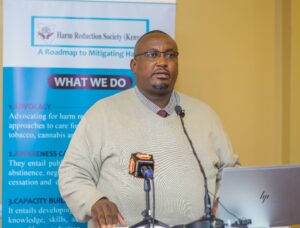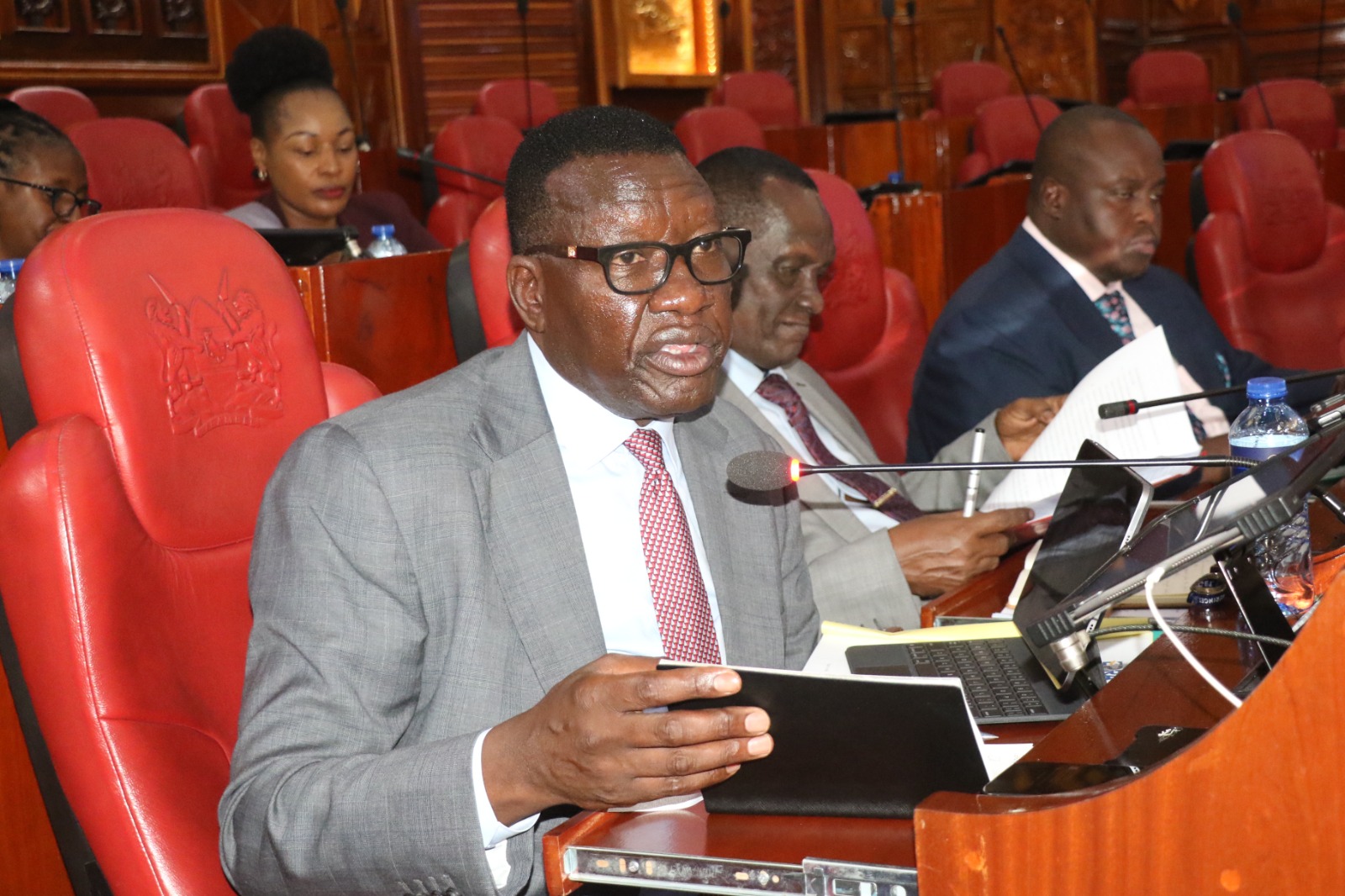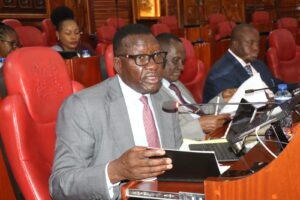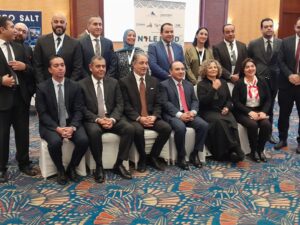
LawMakers risk missing a golden opportunity to save lives and reduce the public health burden caused by cigarette smoking if they launch an indiscriminate and ill-informed offensive against safer alternatives, harm reduction specialists warned today.
The experts were responding to an announcement by Public Health Principal Secretary Mary Muthoni that she intends to “wipe out” nicotine products.
Dr Michael Kariuki, secretary-general of the Harm Reduction Society, said: “Alternative
nicotine products like regulated vapes and oral pouches are scientifically proven to be far less harmful than cigarettes and are the most successful method for helping smokers to quit.
“Regulation of these products is, of course, necessary, to protect children and the youth. However, that regulation should be evidence-based and proportionate to the risks posed, after taking into
consideration the smokers who need these therapeutic products.”

Society of Kenya Secretary General Dr. Michael Kariuki, (center) sharing a brief moment together
with Joel Sawa (far Right) during Harm Reduction Society of Kenya and Campaign for safer
Alternative press briefing conference at Sarova Stanley Hotel.
Joel Sawa, spokesperson for Campaign for Safer Alternatives (CASA), said: “If smokers can’t or won’t quit, we need to help them switch to safer alternatives. The best way to save lives is to ensure that tobacco-free products like regulated nicotine pouches and vapes are affordable and accessible.
“Wiping them from the market leaves smokers with no option but to keep smoking. It’s unthinkable that policymakers are even considering indiscriminate, ill-informed and nonevidence-based actions against them without any heed to this potential mishap.”
The experts, speaking at a joint press conference in Nairobi, pointed to the growing weight of international evidence the beneficial impact of alternative nicotine products:
● Researchers at the University of Nairobi have found that there was little or no quality
control in terms of levels of toxicants or psychoactive ingredients of oral stimulants such as khat and smokeless tobacco products such as pan, tambu, gutkha, Kuber, toombak, sniffed and chewed tobacco in Kenya, which put their users at considerable health risks and that regulated oral nicotine products carry similar levels of toxicants and risks as nicotine replacement therapies which feature on the WHO’s list of essential medicines.
● The US Food and Drug Administration says Modified Risk Tobacco Products (MRTPs)
“will significantly reduce harm and the risk of tobacco-related disease to individual
tobacco users and benefit the health of the population as a whole”1 Such MRTPs are
regulated nicotine pouches and vapes which are largely used in countries such as Swedenand the UK to assist cigarette smokers to quit.
● In countries worldwide, from the UK and France to the USA, Pakistan and New Zealand, innovative alternative products are already helping smokers who had despaired of ever being able to give up their deadly tobacco habit.
● Non-Tobacco Nicotine products do not contain tobacco and extensive international
research has found them 95% less harmful than traditional combustible cigarettes.
● Studies show that regulated modern oral nicotine products carry similar levels of
toxicants and risks as nicotine replacement therapies (NRTs), which are on the World
Health Organization’s (WHO) list of essential medicines.
● Sweden is about to achieve the status of being the first country in the world to become officially smoke-free after making safer alternatives acceptable, available and affordable to adults. It now has the lowest smoking and tobacco-related disease rates in Europe.
Harm Reduction Society aims to provide a community for harm reduction practitioners, community workers, organizations, researchers and policymakers. It strives to create awareness
among all sectors of the society about harm reduction practices and to engage in and support evidence-based research on harm reduction approaches to health.
Campaign for Safer Alternatives is an international Pan-African non-governmental organisation dedicated to achieving 100% smoke-free environments Africa. It is the unifying voice for consumer organisations advocating for tobacco harm reduction in Africa, promoting discussion and the exchange of information and potential actions to reduce exposure to tobaccorelated harm.
















